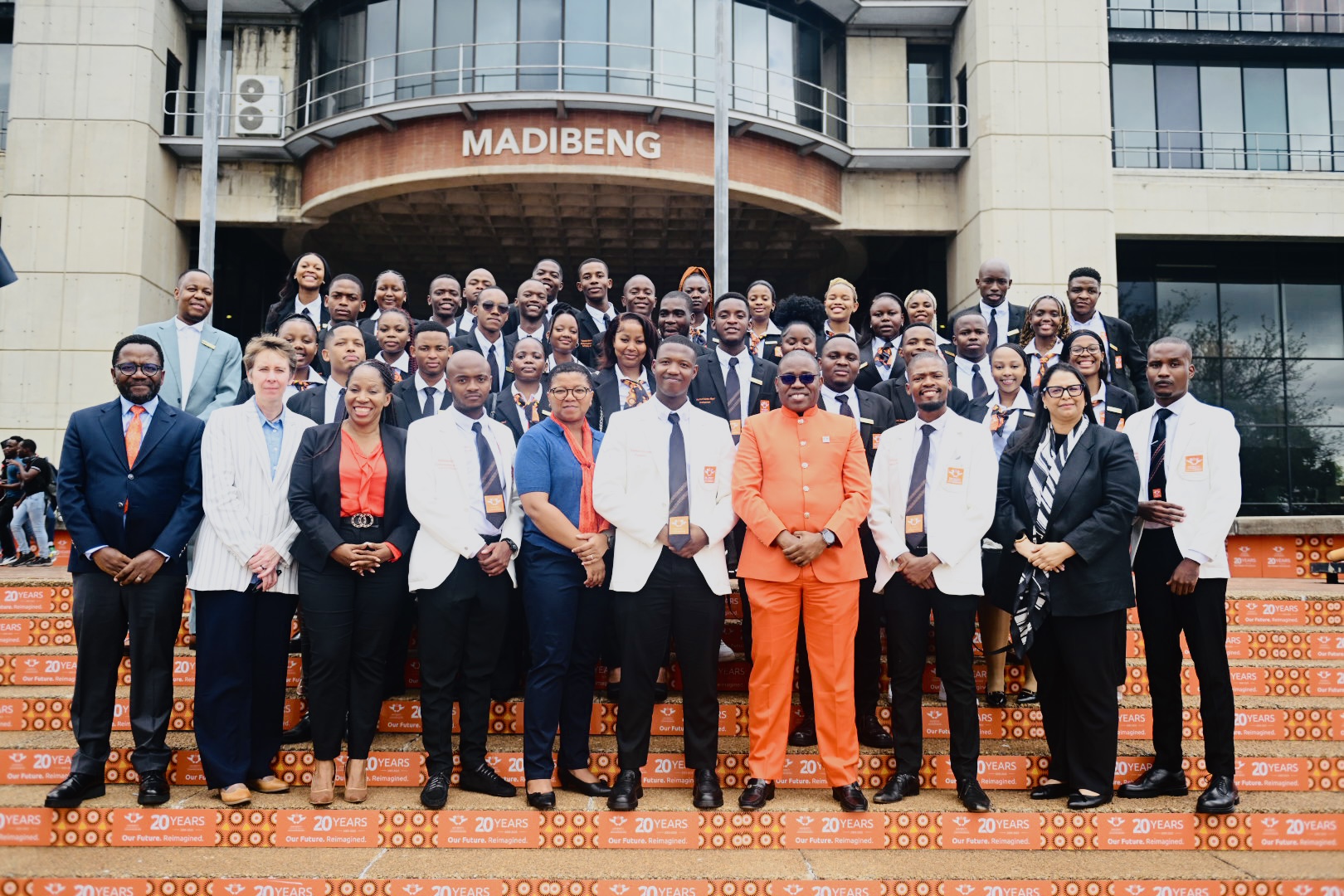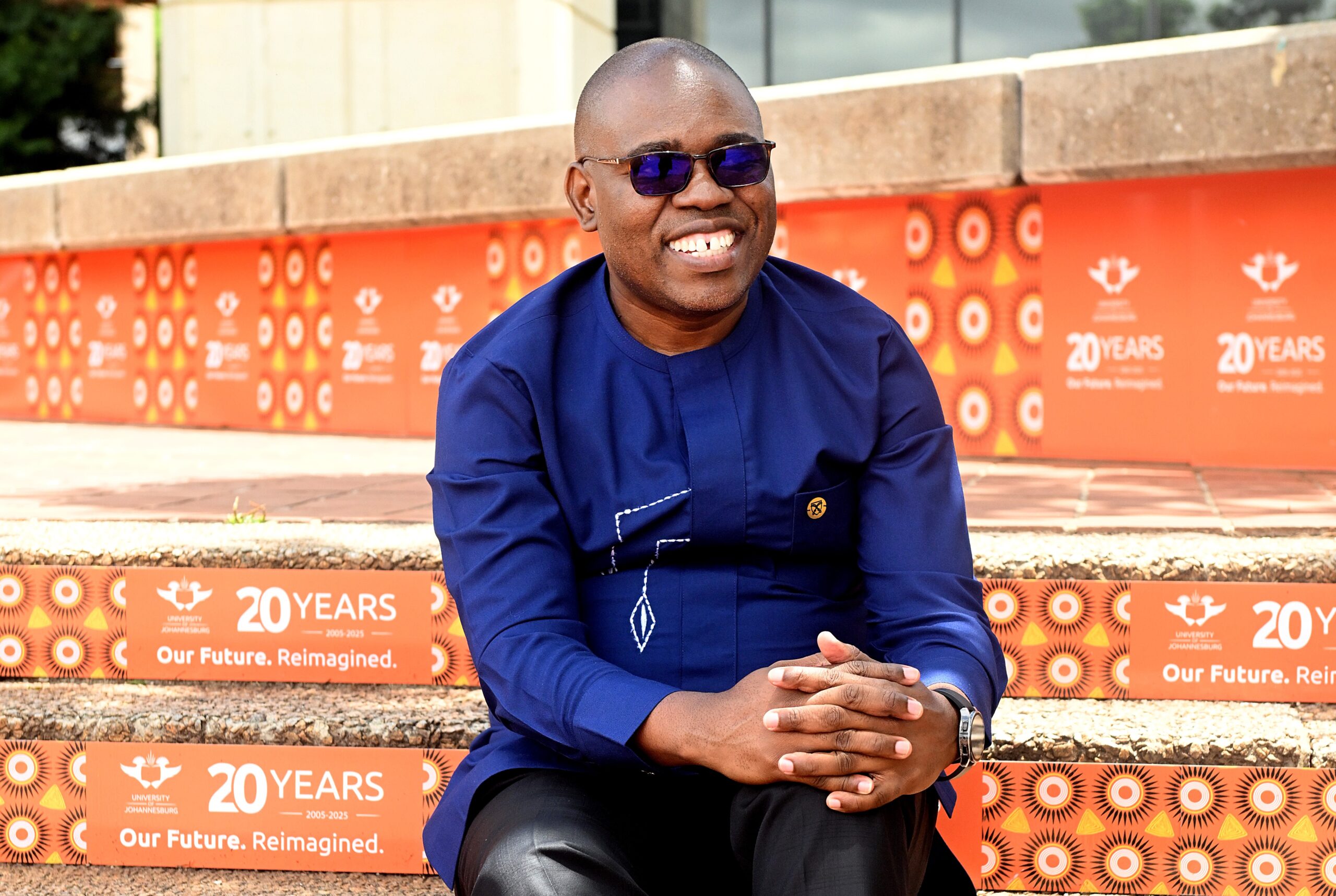Throughout the world, governments, societies and business structures encourage people to start their own businesses and establish themselves as entrepreneurs with a positive change. As the world annually celebrates entrepreneurship during the Global Entrepreneurship Week (GEW), this year (16th – 22nd November 2015), the University of Johannesburg (UJ) and the Dr Richard Maponya Institute for Skills and Entrepreneurship Development will host the CEO of ActionAid International, Mr Adriano Campolina, at The 2nd UJ – Dr Richard Maponya Annual Lecture on Entrepreneurship on Thursday, 19 November 2015 at the INDABA Hotel, Fourways, Gauteng Province.
The lecture with the theme: Entrepreneurship Development – Brazilian and South African Perspective, offers a combination of methods and practices that South African entrepreneurs, particularly emerging small and medium enterprise owners, could absorb.
Mr Campolina is one of the internationally renowned agronomist and activist for human rights. He worked on global policy issues related to food security, and gradually took over management and leadership positions focusing on contributing to the internationalisation of ActionAid through devolution of power to countries.
Mr Campolina started his professional career as dairy farmer working with local non-governmental organisations (NGOs) in country-side Brazil where he was born, implementing local development programmes in many communities. He was also part of a national network on sustainable agriculture, with a strong emphasis on development and conservation of agro-biodiversity, including participating on global negotiations on biodiversity and farmer’s rights led by UN body FAO.
“The UJ Faculty of Management takes pride in our relationship with the Dr Richard Maponya Institute for Skills and Entrepreneurship Development. Our partnership has realised a series of meaningful events in the course of 2015 and will conclude the year with The 2nd UJ – Dr Richard Maponya Annual Lecture on Entrepreneurship. This benchmark partnership contributes to sculpting the nation we want to be, and by exploring the best way to get there,” says Prof Daneel Van Lill, the Executive Dean: Faculty of Management, UJ.
The lecture is expected to start at 19:00, with arrival scheduled for 18:00pm.
“This is the second lecture we are running in partnership with the Faculty of Management, University of Johannesburg, during the Global Entrepreneurship Week. We are glad that this year we could invite the born Brazilian, Mr Adriano Campolina, CEO of ActionAid International, to address the topic: Entrepreneurship Development – Brazilian and South African Perspective. My Institute was inspired by Brazil’s SENAI Model that was introduced to us during our visit to that country as members of President Jacob Zuma’s delegation in 2010,” says Dr Richard Maponya, Chairman and Founder: Dr Richard Maponya Institute for Skills and Entrepreneurship Development.
The crucial role of social policies: The social safety in Brazil is complex, combining public pension (retirement by age or special conditions), public education and public health system. This social system was strengthened in the past 13 years. In addition there was the creation of a cash transfer program that now benefits 14 million families and a number of new federal programs such as the housing program that delivered more than 1 million new houses and 800 000 cisterns to ensure access to water in drought prone areas.
Job creation and increases on minimum salary: In these years, there has been a strong emphasis on creating new jobs (18 million jobs were created between 2002 and 2012). The minimum salary had a real increase of 72% from 2003 to 2013. The combination of formalised jobs (with all social security that it encompasses) and better salaries had a crucial impact on reducing poverty.
Entrepreneurism and technical and vocational education: Supporting the economic activities by poor communities on both rural and urban areas has been incredibly important. The credit program for small holders farmers was increased substantially (400% from 2002) and benefits 3.5 million small holder farmers. A new procurement policy made it compulsory that public schools have to buy from poor farmers at least 30% of the food required for the school meal program, creating a vast institutional market for poor farmers with predictable prices and diverse demand.
Global Entrepreneurship Week is the world’s largest celebration of the innovators and job creators, who launch startups that bring ideas to life, drive economic growth and expand human welfare. During one week each November, GEW inspires people everywhere through local, national and global activities designed to help them take the next step in their entrepreneurial journey. These activities, from large-scale competitions and events to intimate networking gatherings, connect participants to potential collaborators, mentors and even investors—introducing them to new possibilities and exciting opportunities.
Exactly 140 countries now celebrate Global Entrepreneurship Week each November (complete list by continent). The number has grown since the initiative launched in 2008: 2008: 77 countries; 2009: 88 countries; 2010: 104 countries; 2011: 123 countries; 2012: 131 countries; and 2013: 140 countries
Adriano Campolina BIO
Adriano Campolina is the Chief Executive of ActionAid International and has been working on the civil society leading human rights based development programmes and campaigns for the past 22 years. He is an agronomist with masters on agriculture, development and society. He has been a political activist since a high school student, leading the students association in his high school and college and being part of the liberation theology inspired Catholic Youth pastoral and as Minas Gerais State’s Youth Secretary of the Worker’s Party (PT). As a youth leader, Adriano had a strong participation on the Brazilian mobilisations towards democracy, new constitution, public education and agrarian reform in the 80’s and early 90’s.
Mr Campolina started his professional career as dairy farmer worked with local NGOs in country side Brazil where he was born implementing local development programs in many communities. He was also part of a national network on sustainable agriculture, with a strong emphasis on development and conservation of agro-biodiversity, including participating on global negotiations on biodiversity and farmer’s rights led by UN body FAO. Adriano worked as advisor for the national confederation of workers in agriculture (CONTAG), where he was deeply involved on developing rural workers and smallholder farmers and landless movements’ propositions for land reform, smallholder farmer’s credit schemes and other agrarian policies. He was also adviser for CUT, the national central organisation for labour unions, providing political and economic advice. Adriano worked as chief of cabinet for the Worker’s Party (PT) congressman Valdir Ganzer, and took part of the party working group on agrarian issues supporting the development of party positions in a range of agricultural and agrarian themes.
Adriano focused his early career on policy issues related to food security, and gradually took over management and leadership position focusing on contributing to the internationalisation of ActionAid through devolution of power to countries. In ActionAid, he has led campaigns, programmes and policy in Brazil; ActionAid international’s trade campaign, the Americas Region and has also been Executive Director of ActionAid Brazil, where he pioneered international fundraising from emerging countries in combination with strong local programmes. Mr Campolina has been ActionAid International’s CEO since 2004, and has restructured the organisation to further devolve power to its members and also led a coalition building with other INGOs and networks to fight together against inequality.



